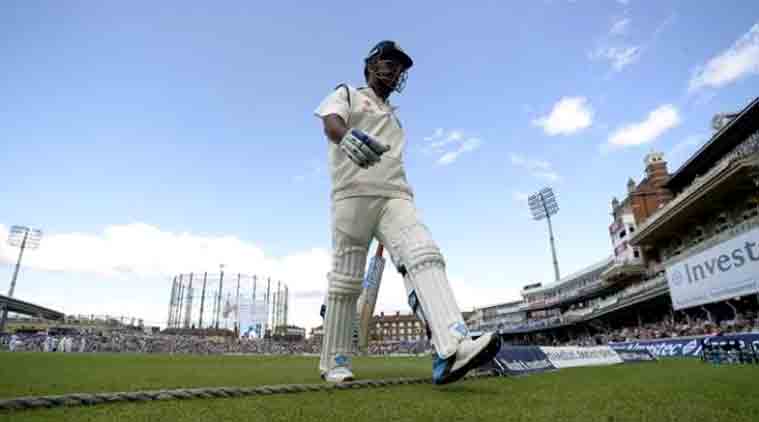Opinion What Dhoni achieved goes way beyond numbers
He told young small-town Indians that they could conquer the cricket world

 What Dhoni achieved goes way beyond the numbers he produced.
What Dhoni achieved goes way beyond the numbers he produced.
I don’t think anyone knew Mahendra Singh Dhoni. I don’t think anyone was meant to.
I certainly didn’t know him very well. I had dinner with him once and it was revealing. He had come over to the apartment we were at in Adelaide. My colleague had cooked. I was warming the pre-cooked chapattis and he came over and said he would do it himself. He talked freely. When he had finished dinner, he picked up his plate, walked across to the basin, washed it and placed it upside down on the draining board. He volunteered to wash the other plates as well.
I tried telling him that he must speak to India’s cricket lovers more often. He nodded and smiled. Of course, he didn’t. But that evening, I got the feeling that I was talking to someone who wasn’t trapped by the game. We all are, in some ways, because cricket offers us so much. It fills our lives. But Dhoni, I felt, was in it yet detached. He talked about bikes, planes, guns and wanting to become a sniper! I remember saying, “I won’t be surprised if he just walks away from the game and never comes back.”
He hasn’t yet because, while he has finished with Test cricket, he continues with the format he has been far better at. But he has walked away with no fuss at all. Remember the long-haired new captain who had just won India the first World T20? He gave away his match shirt to someone in the crowd and walked away quietly. And the suave captain who won India the 2011 World Cup? Spot him in any of the pictures? He let it be Tendulkar’s moment. He let it be about Indian cricket. It wasn’t about him and he didn’t force himself into every frame. It was actually his evening but he looked at it from afar. I thought it was cool. The sign of a confident man. He made a statement by not being there.
What he did in Test cricket was remarkable. He took his rustic game — the firm jab, the slash over point — and squeezed more out of it than you would have thought possible. An average of 38 is excellent for someone who did as many squats behind the stumps as he did, for someone who had to be in the game always. It is very difficult to be a wicketkeeper, captain and batsman. He did it for 60 Tests — remarkable.
Yes, it wasn’t his favourite format. It is extremely difficult to captain India overseas, for it means taking 20 wickets quickly enough. He didn’t have Kumble, there was no Harbhajan or Zaheer at their peak, no Srinath, even Sreesanth and R.P. Singh had fallen off a cliff. Eventually, every Indian captain overseas is forced to play a waiting game. You can show bluster for a while, you can set attacking fields, but the scoreboard always tells the story. If you can’t take 20 wickets, you can’t win and Dhoni never had that. Towards the end, it affected the way he led the side. We all become creatures of our experience. He knew that it was time to let someone less wounded by overseas defeats take over.
That is why he liked one-day cricket, in which, if you can’t take 10 wickets, you squeeze out 50 overs. In the last couple of years, as bats grew bigger and end-overs hitting became more sophisticated, he struggled because his team didn’t take enough wickets early on. But at least you could outscore the opposition over 50 overs. In Tests, he couldn’t do that. And so India increasingly looked like a side that waited for the opposition to set the game. It was different in India, where he had the surfaces that allowed his bowlers to dominate.
As a player, too, he changed. As everyone does. The bravado that so defined his early innings died away a bit. His best innings have been in limited-overs cricket, where he competes in a very small shortlist to be India’s finest cricketer. In Test cricket, he was a contributor, not a leader, though those that saw his double century against Australia in Chennai will savour memories of a genuinely great innings. But such innings didn’t come very often. Maybe we are dissatisfied because we compare him to Adam Gilchrist, an extraordinary batsman who kept wickets. Maybe the image of an outstanding limited-overs batsman boosted our expectations of him as a Test-match batsman. Still, an average of 38 from number seven is not to be laughed at.
Of course, he will be missed. His calmness, his dignity on the field. But we will be far more wistful when he finishes with limited-overs cricket, in which he is a legend almost incomparable.
What Dhoni achieved goes way beyond the numbers he produced. He told young Indians in small towns that they could conquer the world. That is a substantial, and wonderful, thing to have done.
The writer is a cricket commentator and journalist
express@expressindia.com


